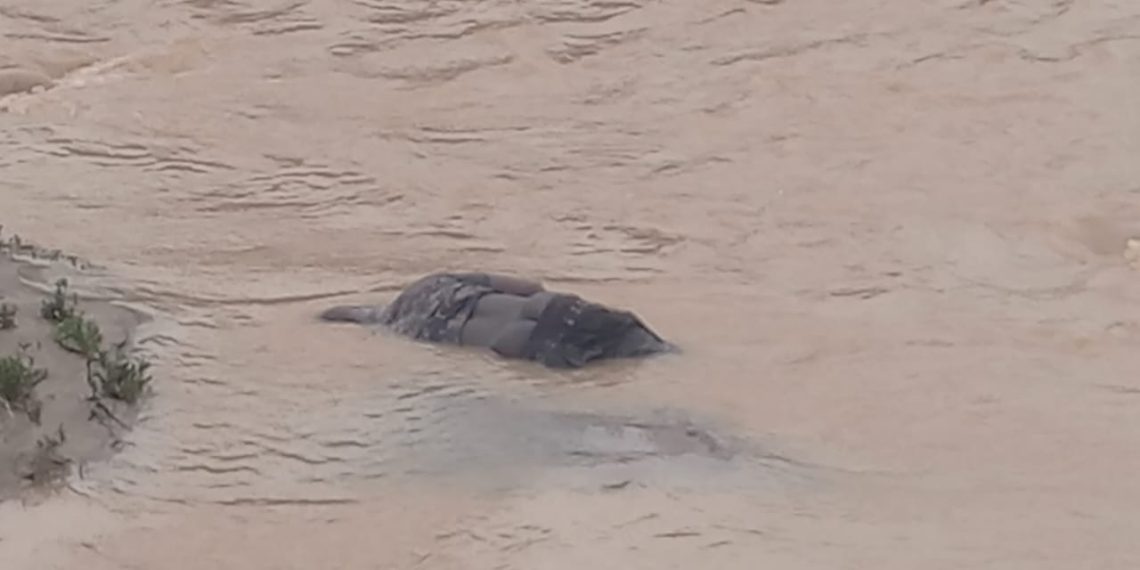Upper East: Red Volta Forest Reserve Under Siege from Illegal Miners, Sand Winners, Herdsmen
Illegal mining operations, uncontrolled sand winning and cattle grazing are wreaking havoc in the Red Volta East and West Forest Reserves (located across the Nabdam and Bawku West Districts in Ghana’s Upper East Region)

When visited, the reserve showed clear signs of distress — the Red Volta River appeared a dark brownish colour, suggesting upstream pollution likely caused by sand extraction and other destructive activities. The forest itself is an important ecological corridor linking Ghana and neighbouring Burkina Faso, particularly for savanna elephants migrating between the two countries.
Key Threats
-
Illegal miners: Some have established camps deep within the reserve, mining without fear of patrol or enforcement.
-
Sand winners: Extraction along the river-banks is undermining the river ecosystem, altering water quality and river flow.
-
Herdsmen and grazing: Cattle are being taken into core protected areas, destroying vegetation and undermining habitat for wildlife. Impacts and Risks
The threats are far-reaching:
-
The habitat of elephants is being fragmented, increasing the likelihood of these animals straying into farms and triggering human-elephant conflict.
-
River pollution and forest clearance are degrading the ecosystem services the reserve provides—such as clean water, flood regulation and biodiversity corridors.
-
Enforcement is weak: According to the Deputy Upper East Regional Manager of the Forestry Commission, Mr. Mark Adu Gamfi, logistical constraints and inadequate staffing make monitoring and patrols extremely difficult.
-
The reserve forms part of a savanna woodland-gallery forest zone that is critical for biodiversity in Ghana’s northern transitional lands.
Enforcement Efforts
So far, the Forestry Commission has made arrests — 19 individuals engaged in environmental crimes within the reserve have been remanded into police custody. Yet, the scale of illegal activity far exceeds capacity to respond effectively, given the vast area and remote location of the reserves.
Why It Matters
Protecting the Red Volta reserves is not just about one forest:
-
The corridor is essential for regional elephant movement between Burkina Faso and Ghana. Loss of the corridor means increased risk of wildlife conflict and biodiversity loss.
-
The river system (Red Volta → White Volta) is lifeblood for communities downstream, especially during dry season. Pollution and sand-winning threaten water security and agriculture.
-
The forest area serves to stabilise soil, regulate runoff and maintain vegetation cover — all important in climate-vulnerable northern Ghana.
What Can Be Done
-
Strengthening patrols and response capacity of the Forestry Commission — more staff, better equipment, improved intelligence gathering.
-
Collaboration with local communities: involve them directly in monitoring, reporting and protecting the reserve. Incentivising local stewardship is vital.
-
Strict regulation of sand winning and mining: ensuring any such activity is legal, minimal-impact, and outside core ecological zones.
-
Wildlife conflict mitigation strategies: because habitat loss is driving elephants into villages, preventive measures (fences, buffer zones, early warning) are urgently needed.
-
Cross-border cooperation with Burkina Faso: since the corridor spans both countries, joint conservation efforts would enhance outcomes.
This situation underscores how fragile protected areas can become when economic pressures meet weak enforcement. If the destructive activities in the Red Volta reserves are not addressed, the consequences for wildlife, ecosystems and local human communities will be profound.
Would you like me to pull up a map of the reserve, or find recent data on how many elephants are using the corridor?




